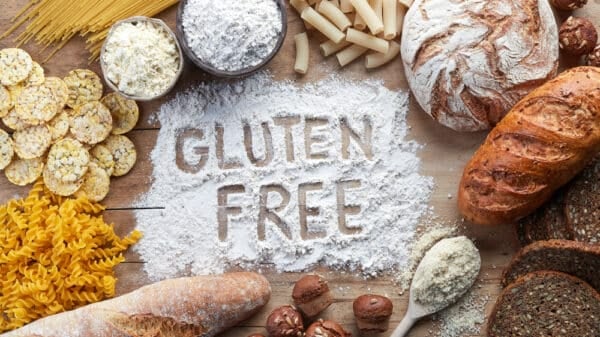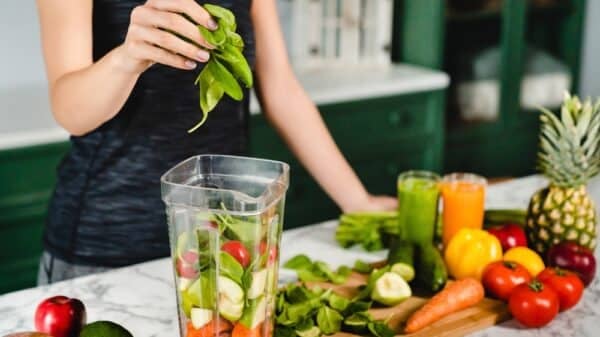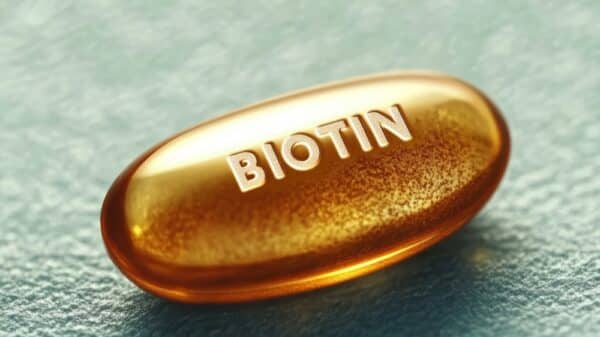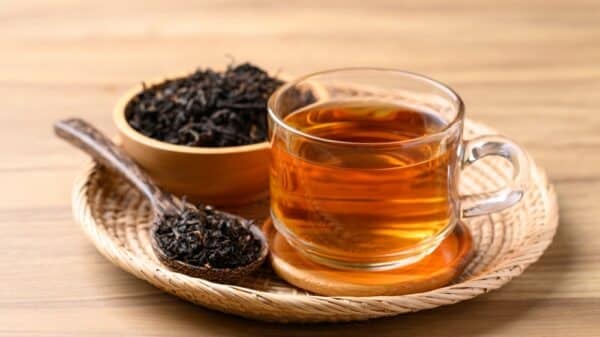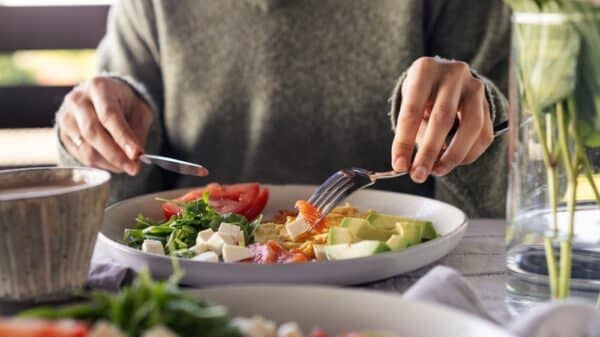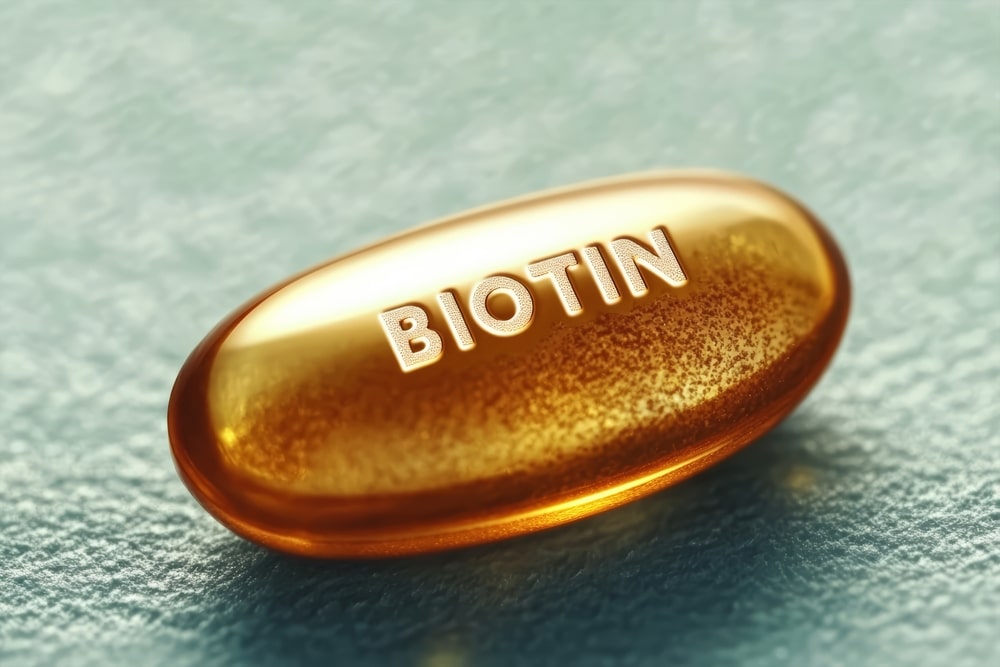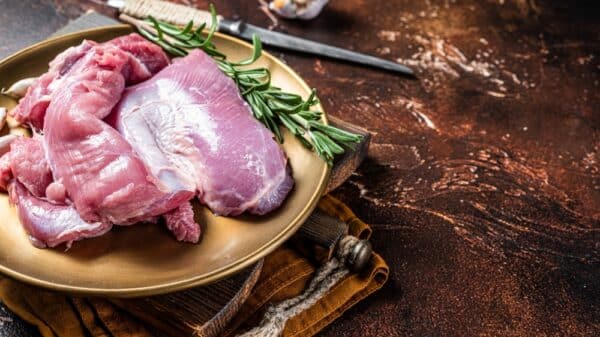If you’ve ever dreamed of having glossy hair, clear skin, and strong nails, chances are you’ve stumbled upon biotin—the wonder vitamin that seems to be at the heart of countless beauty products. You might have seen it touted in everything from women’s multivitamins to specialized hair, skin, and nail formulations. But before you start stockpiling biotin supplements, it’s worth diving into how effective they really are and whether you can pump up your biotin levels just by eating the right foods.
Let’s peel back the curtain on what biotin is all about, why your body needs it, and how you can make sure you’re getting enough, either through diet or supplements. We also sought insights from health professionals to help you understand if biotin supplements are beneficial for you.
Biotin, or vitamin B7 (and occasionally referred to as vitamin H), is a water-soluble vitamin that plays a pivotal role in converting what you eat into the energy your body needs. Jennifer Bourgeois, a clinical pharmacist and health expert, emphasizes that some people mix up biotin with vitamin B12, but while both belong to the B vitamin family, they govern quite different functions. “Biotin is the one that supports metabolism, along with promoting healthy hair, skin, and nails, while vitamin B12 is primarily responsible for producing red blood cells and maintaining brain and nerve health,” she explains. Knowing this distinction is crucial, especially if you’ve been searching for a one-size-fits-all solution for your wellness needs.
When it comes to the health benefits of biotin, it’s genuinely impressive. For starters, biotin stimulates keratin production, which is a critical structural protein for your hair, skin, and nails. If you’ve been battling brittle nails, struggling with thinning hair, or noticing fine lines appearing on your skin, it might be a sign that you could use a biotin boost in your diet. Think about it—most of us want to flaunt luscious locks and a radiant complexion, and biotin is a natural ally in that journey.
But the benefits don’t stop at just beauty. Believe it or not, biotin is also essential for maintaining good oral health. Dr. Sandip Sachar, a dental expert, points out that biotin, alongside other B vitamins, helps keep your mucosal tissues healthy and supports recovery following dental procedures. Plus, there’s research suggesting that biotin might help boost your immune system and reduce the risk of oral infections, like oral thrush, which can be quite uncomfortable. It’s not something you’d typically think of when discussing a beauty vitamin, but it just goes to show how interconnected our health truly is.
Interestingly, biotin may also play a role in boosting brain function. Bourgeois notes that emerging studies suggest biotin could protect brain cells and may be beneficial in terms of learning, memory, and even reducing the risk of neurodegenerative conditions like Alzheimer’s disease. It’s exciting but keep in mind that this area is still in the research phase, and much more information is needed to conclusively establish this link.
And for all the moms-to-be, biotin is not just about beauty and brains; it’s crucial for fetal and infant development. During pregnancy and breastfeeding, your body needs extra nourishment, and biotin is vital for supporting healthy growth during these stages. If you’re pregnant or planning to conceive, it’s wise to discuss your biotin intake with your healthcare provider to ensure you’re getting the right amount, preferably through adequate prenatal vitamins.
Now, you might be wondering, how do you actually get biotin in your diet? Fortunately, it’s not too tricky! The best sources of this essential nutrient are protein-rich foods such as beef liver, eggs, fatty fish like salmon and tuna, various meats, plus nutrient-dense snacks like almonds and sunflower seeds. While certain vegetables, such as spinach, broccoli, and sweet potatoes, do have some biotin, it’s mainly found in animal products and protein-rich foods.
Given all of this, do you actually need to take a biotin supplement? For most people who follow a balanced diet, deficiencies are quite rare. Unless you’ve been advised by a healthcare professional, you might not need to feel pressured to start popping biotin pills. It’s always best to first look at your nutrition and see what delicious, whole foods you can incorporate into your meals.
Ultimately, whether through the food on your plate or a supplement in your routine, biotin has some impressive benefits that can power your health in multiple ways. What’s most important is finding a path that feels right for you—a path that not only beautifies but also nurtures your body from the inside out.For adults aged 19 and over, the recommended daily intake of biotin is 30 micrograms (mcg), with pregnant individuals advised to consume this amount to support their health and fetal development. If you’re breastfeeding, your biotin needs increase slightly to 35 mcg daily. Thankfully, biotin deficiencies are quite rare because most people get what they need from their diets. However, certain circumstances can make it harder for some individuals to meet their biotin needs, and this is where supplements might come into play.
If you’re navigating pregnancy or breastfeeding, feeling the effects of excessive alcohol or tobacco use, or are on long-term medication—especially anti-seizure medications—biotin supplements may be beneficial. People undergoing kidney dialysis or those with biotinidase deficiency should also consider talking to their healthcare providers about biotin supplementation.
If you’re ever in doubt about whether you’re getting enough biotin from your diet, don’t hesitate to discuss your concerns with a healthcare professional. They can offer personalized guidance based on your specific health situation.
When it comes to biotin supplements, they are generally safe, but caution is needed. There’s some insight from health expert Bourgeois, who points out that taking too much biotin can interfere with lab test results. While it doesn’t affect the levels of all nutrients, it could impact thyroid function tests, potentially leading to a misdiagnosis. In critical situations, such as diagnosing a heart attack, too much biotin could be particularly problematic. This is because biotin can attach to troponin—an important protein released during a heart attack—making it harder for doctors to get an accurate reading.
Fortunately, this concern largely relates to biotin supplements; you don’t need to worry about your dietary biotin interfering with lab tests. When consumed through food, even at higher amounts, it’s not usually an issue. Biotin is a water-soluble vitamin, meaning your body can easily excrete any excess through urine. Toxicity is rare, but taking too much may leave you feeling excessively thirsty, having difficulty sleeping, or making frequent trips to the bathroom.
Often, people have questions about biotin and its effects. For example, many wonder what biotin actually does for the body. To put it simply, biotin is essential for transforming the food we eat into energy, which is vital for overall health. It also plays a crucial role in oral health and contributes to the strength and appearance of nails, skin, and hair. For women who are pregnant or nursing, adequate biotin levels are especially important for the healthy development of their babies.
Another common question is whether biotin is the same as vitamin B12, and it’s important to clarify: biotin is also referred to as vitamin B7 or vitamin H. While both are part of the B vitamin family, they serve different functions in the body. Biotin is crucial for metabolism, while vitamin B12 is key for producing red blood cells and maintaining brain and nerve cell health. Despite their differences, it’s essential for your body to have both of these vitamins, but taking one in excess does not compensate for a deficiency in the other.
If you’re looking to boost your biotin intake naturally, there are plenty of delicious food options. Biotin is particularly abundant in protein-rich foods like beef liver, pork, fish, and eggs, as well as in nuts and seeds. Vegetables such as spinach, broccoli, and sweet potatoes also contain smaller amounts of biotin, but for maximum benefit, focus on the protein sources where it’s most concentrated.
Still, a few downsides to taking biotin supplements exist. They can interfere with certain lab results, particularly those linked to thyroid and vitamin D levels, and they might complicate the diagnosis of heart attacks. Although it’s rare, excessive biotin can also lead to unpleasant symptoms like increased thirst, trouble sleeping, and frequent urination.
Lastly, when you hear about biotin in supplements aimed at enhancing hair, skin, and nails, know that while it’s frequently marketed as a miracle solution, scientific evidence supporting its effectiveness for hair and skin health in those without a deficiency remains limited. Some studies suggest benefits if you’re already deficient, but the benefits of taking additional biotin aren’t well-established.
In summary, biotin is a vital nutrient found rich in both animal and plant-based foods. For most people, meeting the daily biotin requirement through diet is straightforward and effective. While deficiencies or toxicities are uncommon, be mindful that taking biotin supplements may lead to unwanted side effects or affect blood work. Before adding any supplements to your routine, it’s always a wise choice to consult with a healthcare provider to ensure it’s right for you.
Image Source: Lifesummerlin / Shutterstock

